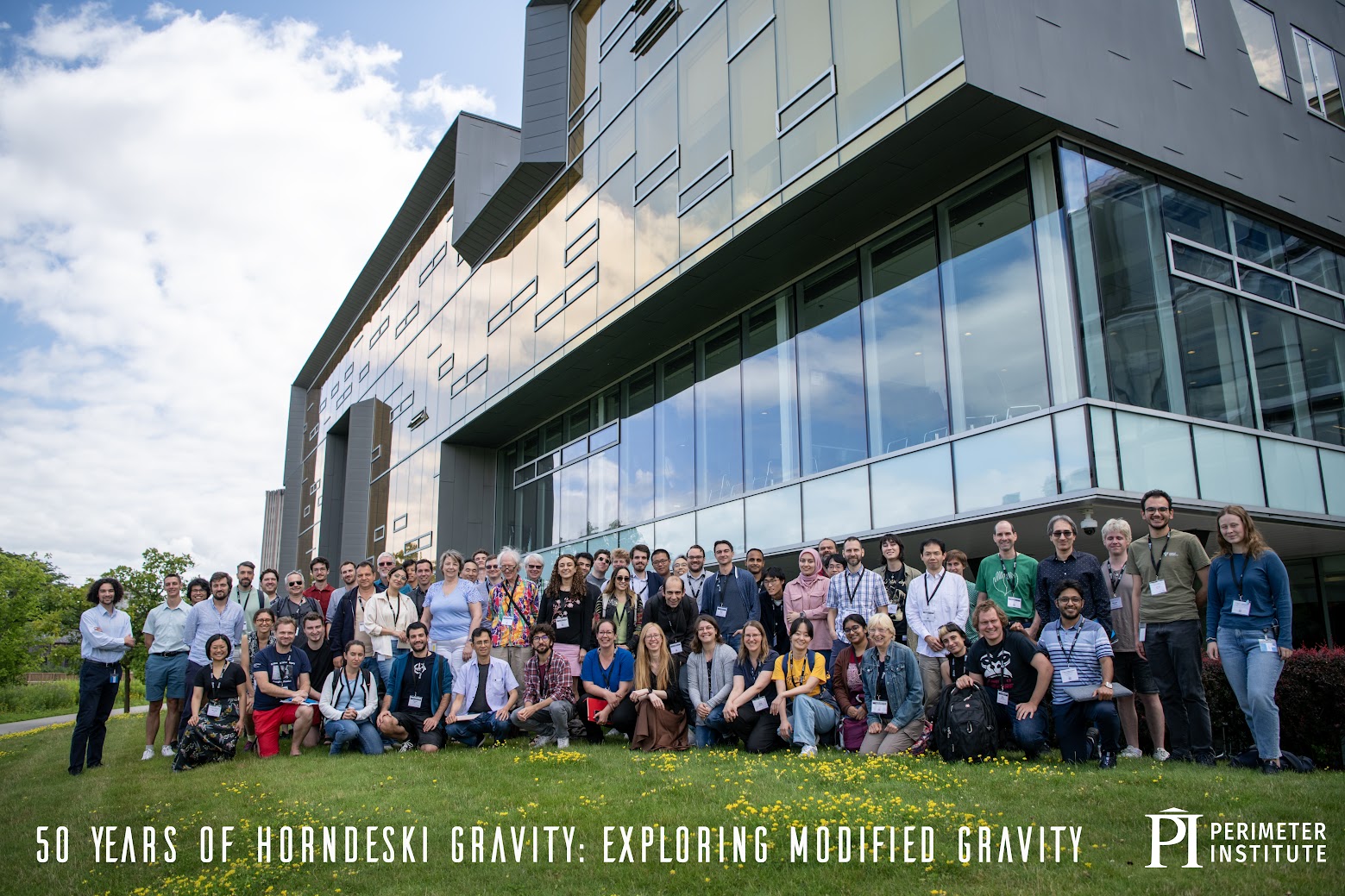
Recent years have seen a flood of new data, from gravitational wave observations of merging black holes and neutron stars to precision probes of cosmology, which allow for unprecedented tests of our understanding of gravity. Going hand-in-hand with this, there has been significant recent progress on the theoretical side in terms of formulating modified theories of gravity, and using them to make detailed predictions, including in the nonlinear and dynamical regime, which can be confronted with the observations.
We are excited to announce a landmark conference that plans to delve into the forefront of research on modified theories of gravity and brings together leading experts from different disciplines including observational astrophysicists, numerical relativists, cosmologists and mathematical physicists to explore the present status of modified theories of gravity and envision their future theoretical development and implications for observations.
This conference is also timed to coincide with the 50th anniversary of pioneering work in this area carried out by Gregory Horndeski in the Waterloo Mathematical Physics Community. Hosted jointly by Perimeter Institute and the University of Waterloo, this conference will serve as a forum for researchers from different disciplines to exchange ideas at the cutting
edge of gravitational physics.
Presented by:
Sponsored in part by Gravity Theory Trust
:: :: ::
Topics:
• Modified Gravity Theories: Theoretical Framework and Models
• Tests of modified Gravity with Gravitational Waves (LIGO/LISA/PTA)
• Astrophysical/cosmological tests of gravity
• Mathematical structure of Modified gravity
• Observational tests of quantum gravity
• Modified gravity in the early universe
Conference Structure:
The conference will feature a balanced blend of plenary sessions (invited Speakers), contributed talks, panel discussions and poster presentations for students.
• Keynote presentations by renowned physicists in the field, discussing the impact of Horndeski theories and other modified theories of gravity on cosmology, dark energy, and black hole physics.
• Contributed talks: prioritizing early-career researchers
• Panel discussions on emerging research directions, unresolved questions, and potential applications of Horndeski theories.
• Poster sessions for early-career researchers and graduate students to showcase their work and receive feedback from senior scientists.
:: :: ::
Scientific Organizers:
- Ghazal Geshnizjani (Perimeter Institute, SOC Chair)
- William East (Perimeter Institute)
- Levon Pogosian (Simon Fraser University, Perimeter Institute Affiliate)
- Niayesh Afshordi (Perimeter Institute, U Waterloo, LOC Chair)
- Will Percival (Perimeter Institute, U Waterloo)
- Florian Girelli (U Waterloo, Perimeter Institute Affiliate)
- Jerome Quintin (U Waterloo, Perimeter Institute)
- Alex Krolewski (U Waterloo, Perimeter Institute, CITA)
:: :: ::

Format results
-
Testing screened modified gravity models
Kazuya Koyama University of Portsmouth
-
Constraining modified gravity models using galaxy cluster masses
Minahil Adil Butt SISSA International School for Advanced Studies
PIRSA:24070067 -
mochi_class: A tool to streamline cosmological analyses of Horndeski's gravity
Matteo Cataneo University of Bonn
PIRSA:24070068 -
-
A Cosmic Glitch in Gravity
Yunfei (Robin) Wen California Institute of Technology (Caltech)
PIRSA:24070070 -
Cosmological implications from DESI Y1 BAO and Future Forecasts
Hanyu Zhang University of Waterloo
PIRSA:24070071 -
Town Hall - New generation of LSS surveys and modified gravity/dark energy
Hanyu Zhang, Jessie Muir, Kazuya Koyama, Martin Kunz -
-
Galileon Duality and its Generalizations
Andrew Tolley Imperial College London
-
Extending EFT of inflation/dark energy to arbitrary background with timelike scalar profile
Shinji Mukohyama Yukawa Institute for Theoretical Physics
-
Against Horndeski
Cliff Burgess McMaster University
-
Bouncing cosmology; a solution to the singularity problem and more.
Amirhossein Dehghanizadeh The University of Waterloo
PIRSA:24070073
